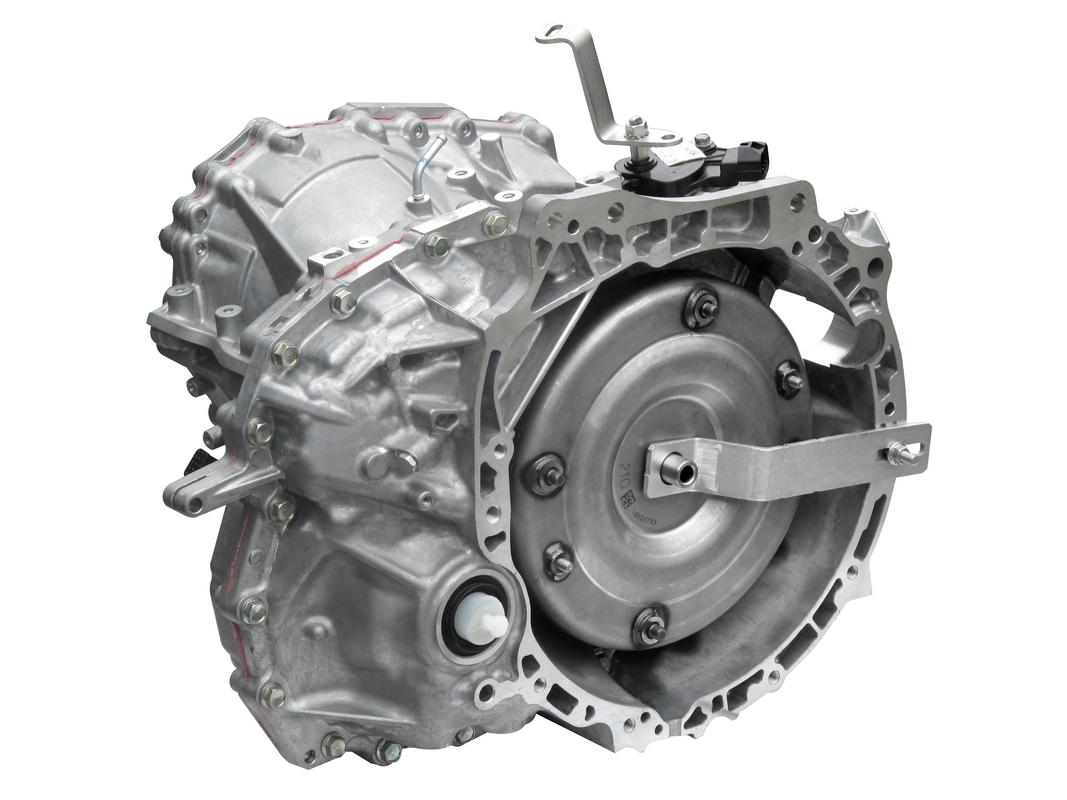Nissan CVT Transmission Recall: What You Need to Know
Nissan CVT Transmission Recall: What You Need to Know Nissan’s Continuous Variable Transmission (CVT) technology has revolutionized the driving experience for millions by delivering smoother acceleration and improved fuel efficiency. However, alongside its benefits, the Nissan CVT has also been the center of controversy due to mechanical issues that have prompted multiple manufacturer actions. Among these, the Nissan CVT transmission recall stands as a significant event that every Nissan owner, potential buyer, or automotive enthusiast should understand thoroughly.
This comprehensive article delves into the intricacies of the Nissan CVT transmission recall, unpacking the reasons behind it, the affected models, symptoms to watch for, the recall process, and what consumers should expect moving forward. By offering an in-depth perspective, this guide aims to equip Nissan drivers with the knowledge necessary to protect their vehicles, their wallets, and, most importantly, their safety.

What Is a CVT and Why Is Nissan So Invested in It?
To appreciate the impact of the Nissan CVT transmission recall, one must first understand what a CVT actually is and why Nissan has heavily invested in this technology.
A Continuously Variable Transmission differs fundamentally from traditional automatic transmissions by using a belt-and-pulley system rather than fixed gears. This configuration allows for an infinite number of gear ratios, enabling the engine to run at optimal efficiency under various driving conditions. Nissan markets their CVT under the brand name “Xtronic,” emphasizing fuel efficiency and smooth, uninterrupted power delivery.
The promise of better gas mileage and refined performance has led Nissan to adopt CVTs across a large portion of its model range—from compact sedans like the Sentra to SUVs like the Rogue. However, despite these advantages, CVTs require precise engineering and high-quality materials to function reliably over the long term. The reality, unfortunately, has been somewhat mixed, resulting in reported failures and the subsequent Nissan CVT transmission recall.
Origins of the Nissan CVT Transmission Recall
The Nissan CVT transmission recall stems primarily from widespread consumer complaints and technical evaluations revealing premature wear and malfunction in certain transmission components. The issue often involves the transmission’s metal belt and pulley system or the valve body, which controls hydraulic pressure within the transmission.
Affected vehicles have exhibited symptoms such as hesitation during acceleration, jerking or shuddering at low speeds, slipping gears, and in some cases, complete transmission failure. The severity of these issues has compelled Nissan and regulatory bodies, such as the National Highway Traffic Safety Administration (NHTSA), to issue official recalls aimed at rectifying the defects.
The recalls started surfacing in the mid-2010s, as Nissan’s CVT technology became more widespread. Early models like the 2013-2015 Nissan Altima and Rogue were among the first to be flagged. Over time, the scope expanded to include additional model years and Nissan vehicles equipped with Xtronic CVTs.
Models Affected by the Nissan CVT Transmission Recall
One of the most important aspects of the Nissan CVT transmission recall is knowing which vehicles are impacted. Nissan’s recall announcements have covered several models and model years. Some of the most notable include:
- Nissan Altima (2013–2015)
- Nissan Rogue (2014–2016)
- Nissan Sentra (2013–2016)
- Nissan Pathfinder (2013–2016)
- Nissan Juke (2013–2015)
- Nissan Murano (2013–2016)
It is crucial to note that this list is not exhaustive. Recall expansions and updates have extended coverage to other vehicles, including certain Infiniti models that use similar CVT systems.
Owners should check their VIN (Vehicle Identification Number) on official Nissan or NHTSA websites to verify whether their vehicle is subject to the recall. This ensures timely action and access to repair programs.
Symptoms and Warning Signs of CVT Problems
Recognizing symptoms of CVT failure before catastrophic damage occurs can save money and prevent dangerous driving conditions. Common warning signs that might indicate issues covered under the Nissan CVT transmission recall include:
- Jerking or shuddering: Especially noticeable during acceleration or at low speeds, a trembling or shaking sensation can signal slipping or malfunctioning CVT components.
- Delayed acceleration or hesitation: The vehicle may lag when you press the accelerator, indicating problems with power delivery.
- Warning lights: The Check Engine Light or Transmission Warning Light may illuminate, signaling that the transmission is reporting fault codes.
- Strange noises: Whining, grinding, or rattling sounds coming from the transmission area should not be ignored.
- Overheating: A burning smell or a transmission temperature warning might mean internal parts are under excessive stress.
If any of these symptoms appear, immediate consultation with a Nissan dealership or certified mechanic is strongly advised to assess the situation and determine whether the Nissan CVT transmission recall repair program applies.
Understanding the Recall Process
When a Nissan CVT transmission recall is issued, the goal is to ensure the defect is corrected safely and efficiently at no cost to the vehicle owner. Here’s a step-by-step overview of what owners can expect:
- Notification: Nissan sends out official recall notices by mail, email, or phone to registered vehicle owners. These notifications provide information about the nature of the defect and instructions for obtaining repairs.
- Inspection: The first step at the dealership usually involves a thorough inspection of the transmission to confirm the presence of any defects covered by the recall.
- Repair or Replacement: Depending on the severity and nature of the defect, repairs can range from software updates to the replacement of the entire transmission assembly. Nissan aims to complete repairs quickly, but in some cases, parts availability can cause delays.
- Warranty Extension: Many CVT recall repairs come with extended warranty coverage on the transmission, sometimes lasting up to 10 years or 120,000 miles, providing additional peace of mind.
- Follow-Up: After the repair, monitoring the vehicle for any recurring symptoms is crucial. Should problems persist, vehicle owners are encouraged to report issues to Nissan and regulatory agencies.
Potential Costs and Financial Impact
One of the driving concerns for Nissan owners regarding the CVT issue is the potential financial burden. While the Nissan CVT transmission recall covers repairs related to manufacturing defects, not all CVT problems fall under recall coverage.
For vehicles outside the recall scope or for transmission damage due to lack of maintenance or abuse, repair or replacement costs can be steep. The complex design of CVTs, along with specialized parts, drives up labor and component expenses. Transmission replacements can range from $3,000 to $5,000 or more, depending on the model and region.
This makes early detection and proactive recall repairs vital to avoid expensive out-of-pocket costs. Additionally, extended warranties and certified pre-owned programs sometimes offer coverage that can mitigate these expenses.
Legal and Consumer Protection Aspects
The Nissan CVT transmission recall has also sparked various legal actions and consumer advocacy efforts. Numerous class-action lawsuits have been filed by owners claiming that Nissan failed to adequately warn about the transmission defects or delayed recall actions.
Consumer rights organizations emphasize the importance of understanding warranty coverage, documenting repair history, and knowing your legal protections under lemon laws and federal safety regulations. Nissan, on its part, has taken steps to enhance transparency and improve customer service responses.
How to Check If Your Nissan Is Part of the Recall
To determine if your Nissan vehicle is subject to the Nissan CVT transmission recall, follow these steps:
- Visit the official Nissan website’s recall section and enter your VIN.
- Check the NHTSA website by inputting your VIN to see any outstanding recalls.
- Contact your local Nissan dealer with your VIN and ask for a recall status update.
These simple steps ensure you stay informed and can act swiftly if your vehicle needs servicing.
Preventative Maintenance Tips for Nissan CVTs
While recalls address manufacturing defects, proper maintenance plays an essential role in extending the life of any transmission. Here are some best practices specifically for Nissan CVTs:
- Use recommended CVT fluid: Always use Nissan-approved CVT fluid and replace it at intervals specified in the owner’s manual.
- Avoid aggressive driving: Sudden acceleration, frequent stop-and-go, and towing heavy loads can stress the transmission.
- Schedule regular inspections: Having your CVT inspected by a certified technician can catch early signs of wear.
- Monitor for symptoms: Stay alert to any unusual noises, vibrations, or warning lights.
By following these guidelines, Nissan owners can reduce the risk of transmission problems and enhance vehicle reliability.
What Nissan Is Doing to Address CVT Concerns
In response to the Nissan CVT transmission recall and associated issues, Nissan has taken multiple corrective steps:
- Enhanced engineering: Newer CVTs have benefited from upgraded components designed to improve durability and performance.
- Extended warranties: To rebuild consumer confidence, Nissan has extended warranty coverage on certain CVT models.
- Customer outreach: Nissan proactively contacts owners about recalls and offers expedited service.
- Dealer training: Nissan invests in technician training to ensure repairs meet high standards.
These initiatives reflect a commitment to resolving past problems while advancing transmission technology.
The Future of CVT Technology at Nissan
Despite the challenges highlighted by recalls, Nissan continues to advocate for CVT technology as part of its green vehicle strategy. The benefits in fuel economy and emissions reduction remain compelling in an era of tightening environmental regulations.
Moreover, innovations such as integrating CVTs with hybrid powertrains and enhancing software controls promise to address past shortcomings. Nissan’s ongoing research and development suggest the CVT will remain a fixture in their lineup, but with more robust reliability assurances.
The Nissan CVT transmission recall represents a pivotal chapter in the evolution of automotive technology, underscoring the balance between innovation and reliability. For Nissan owners, understanding the recall details, symptoms, repair processes, and preventative measures is essential for safeguarding vehicle performance and safety.
While CVT issues have been a source of frustration and cost for some, Nissan’s proactive recalls, engineering improvements, and enhanced customer support signal a path forward. Whether you currently own a Nissan with a CVT or are considering one, staying informed and vigilant is your best defense.
Ultimately, knowledge empowers Nissan drivers to navigate the complexities of transmission technology confidently—ensuring every journey remains smooth, efficient, and worry-free.








